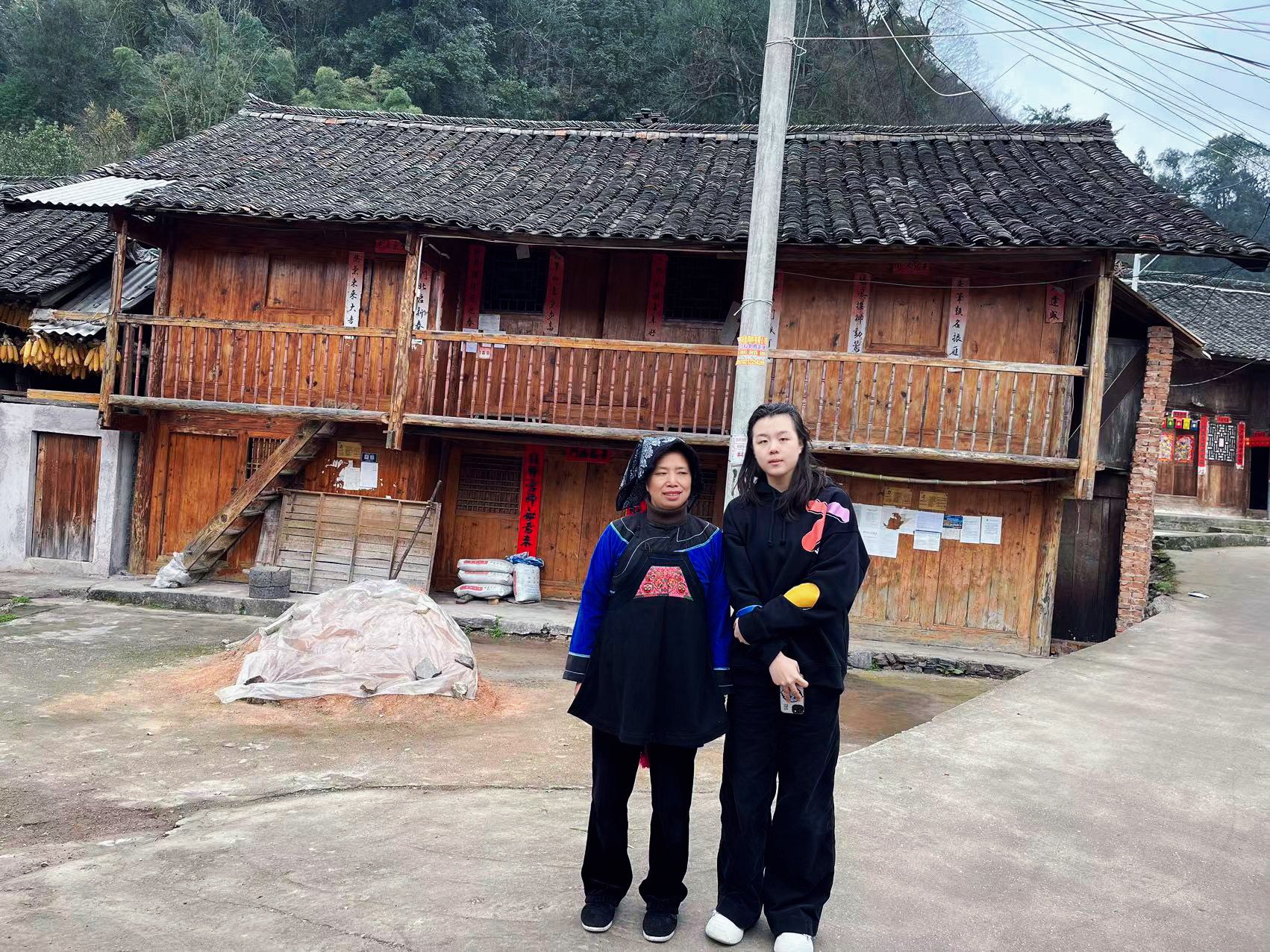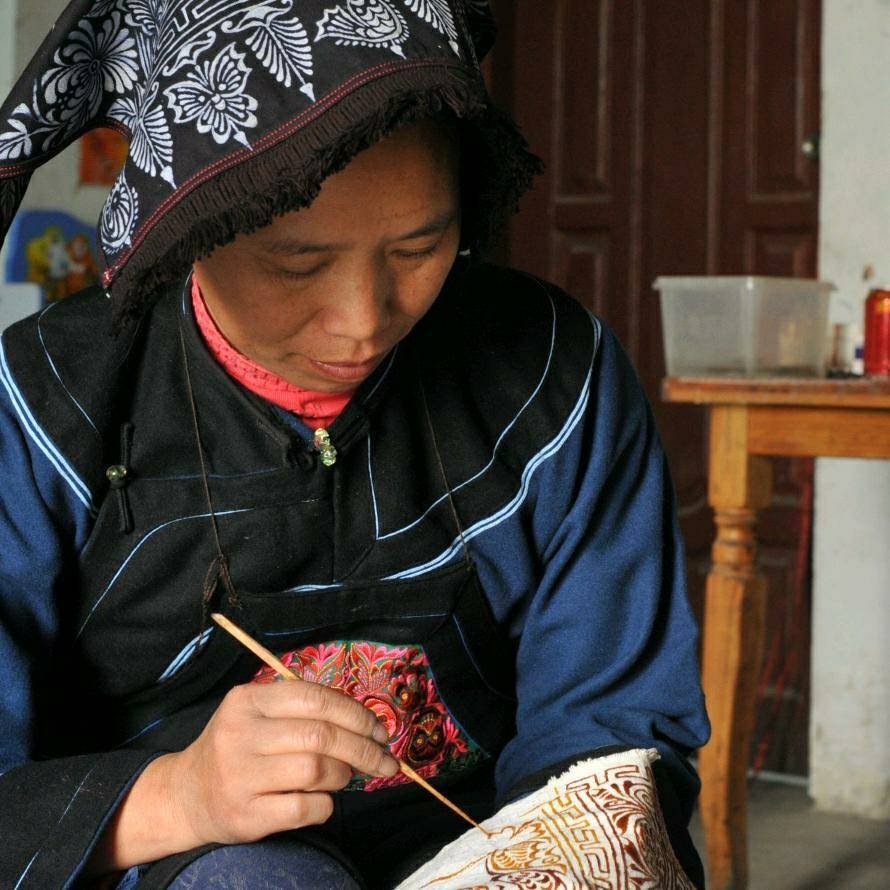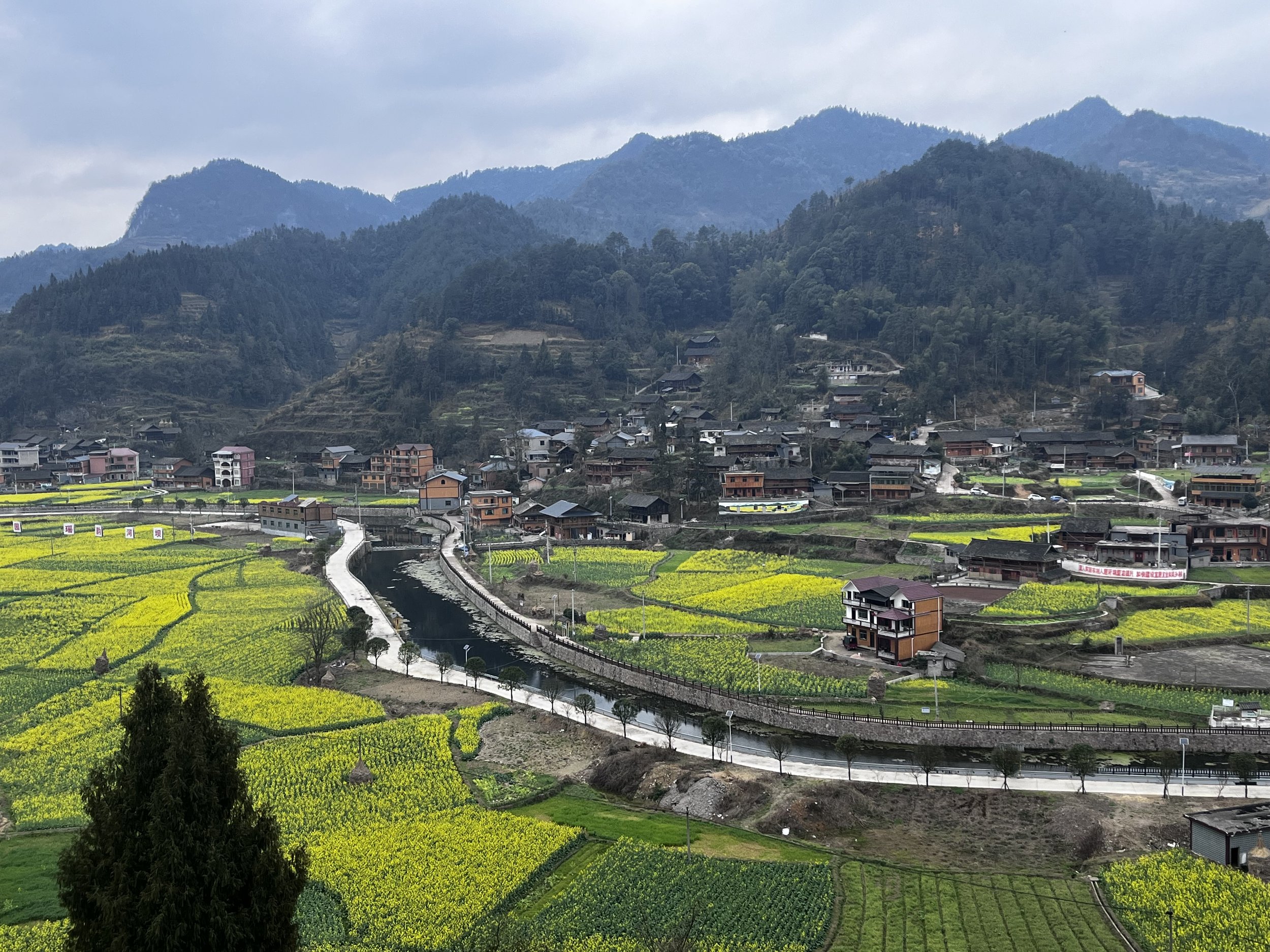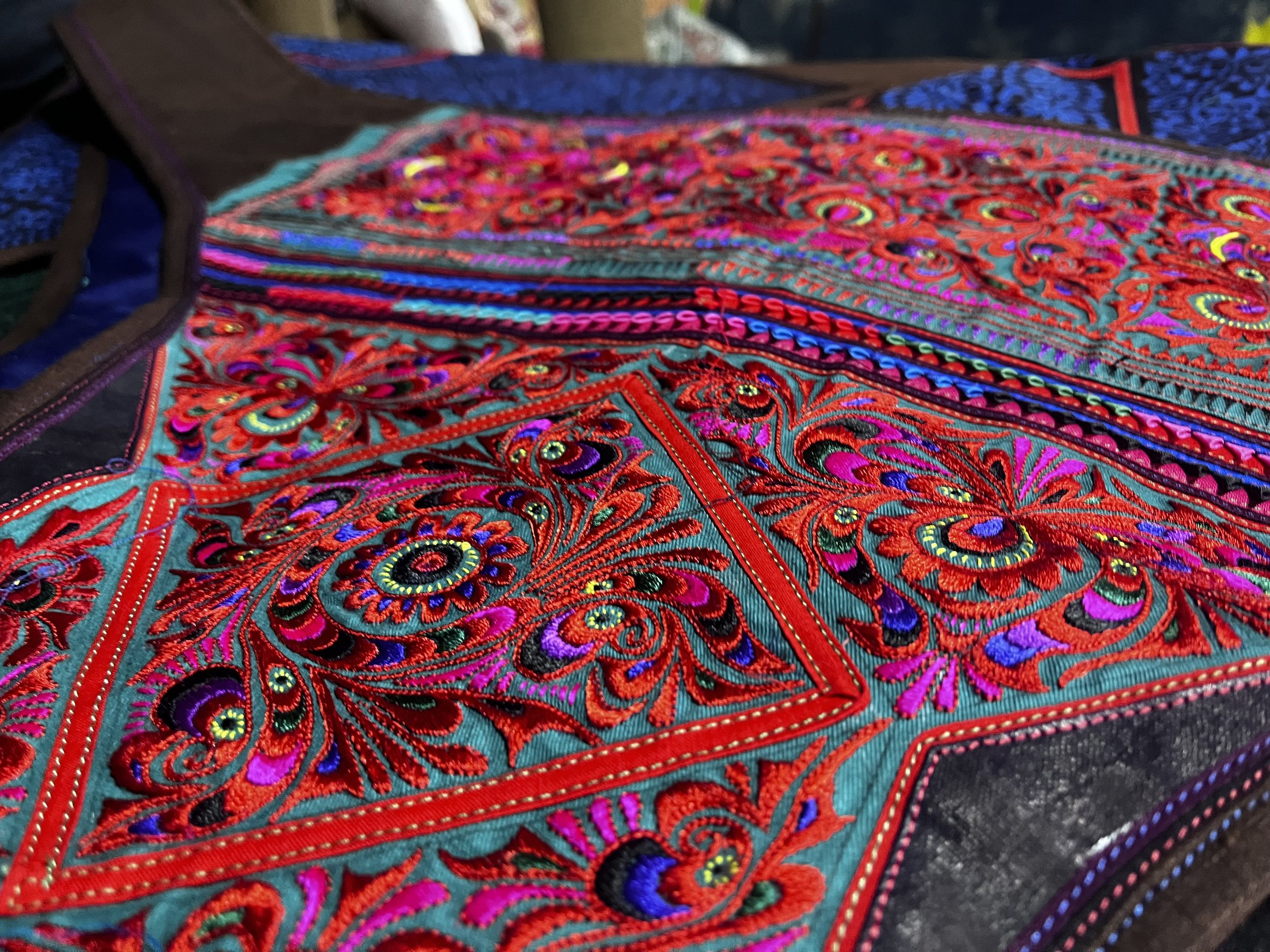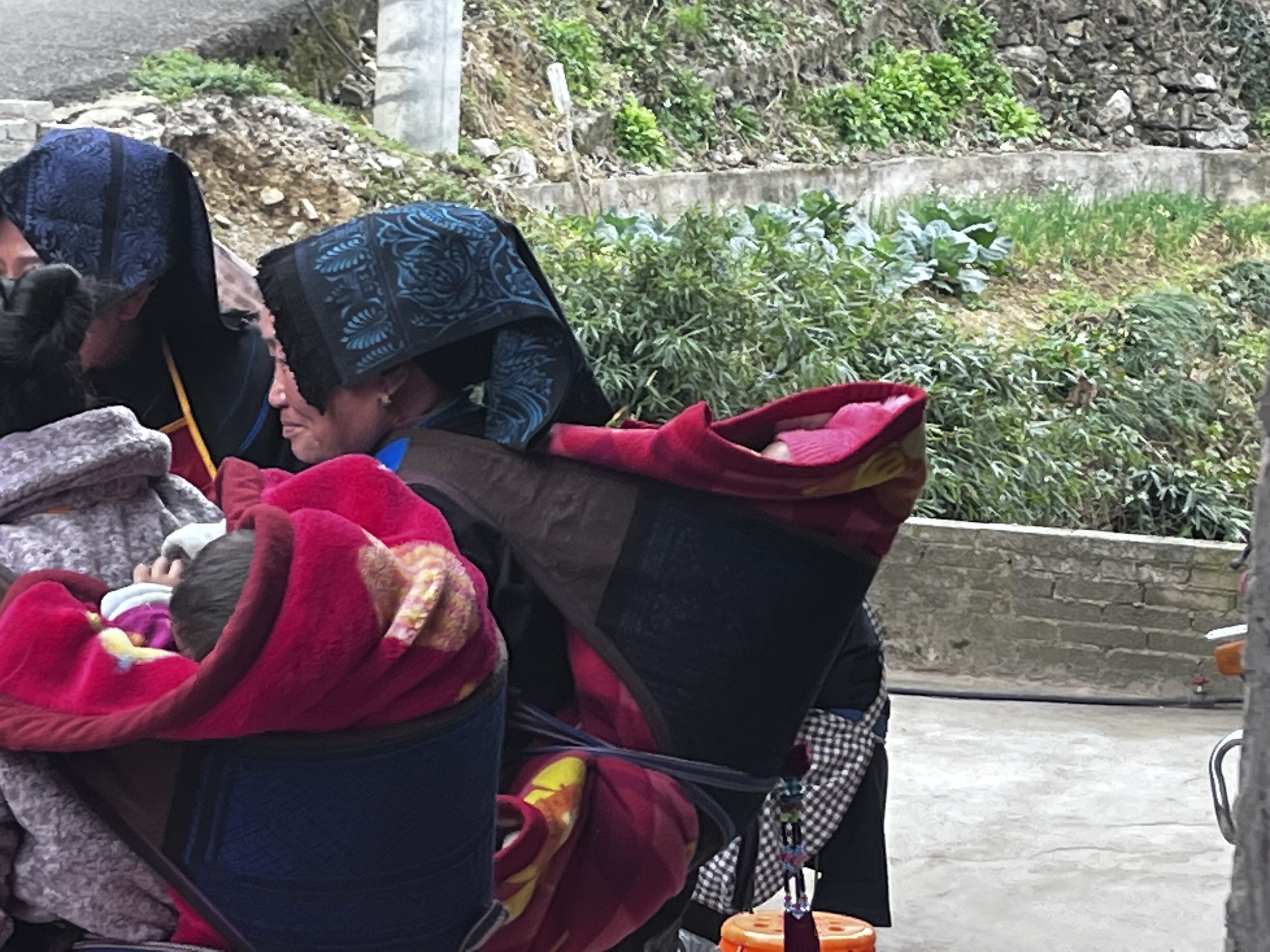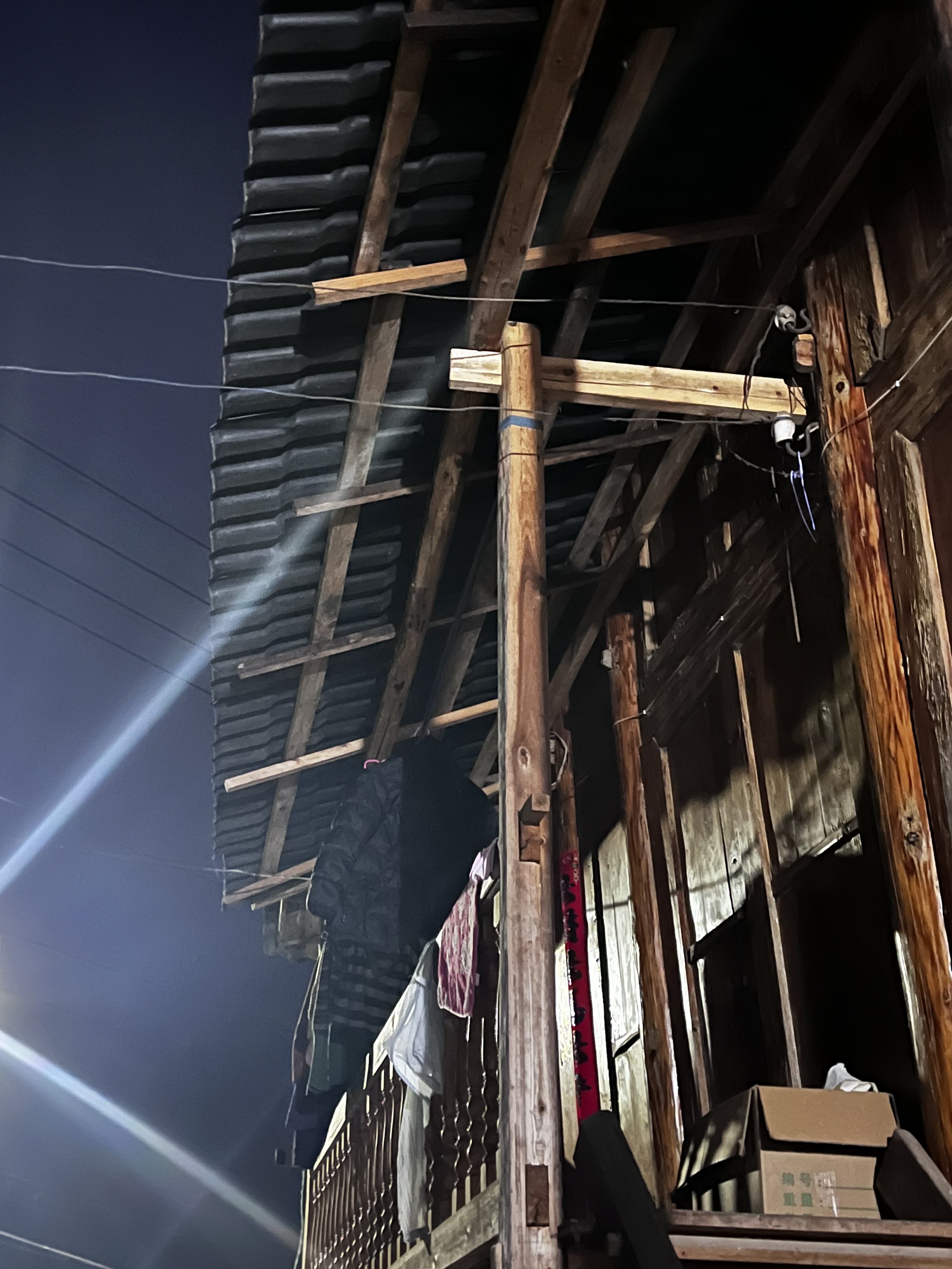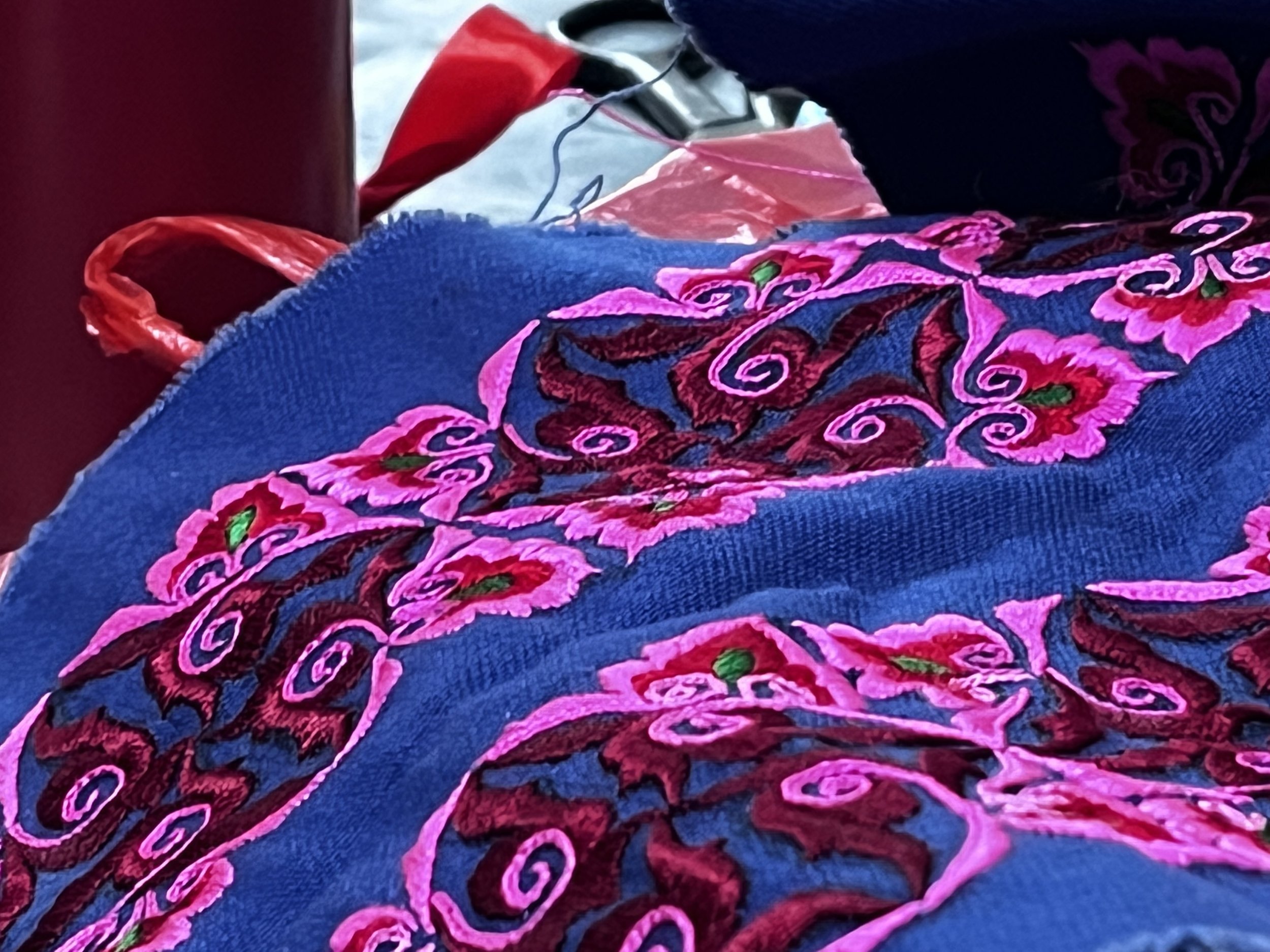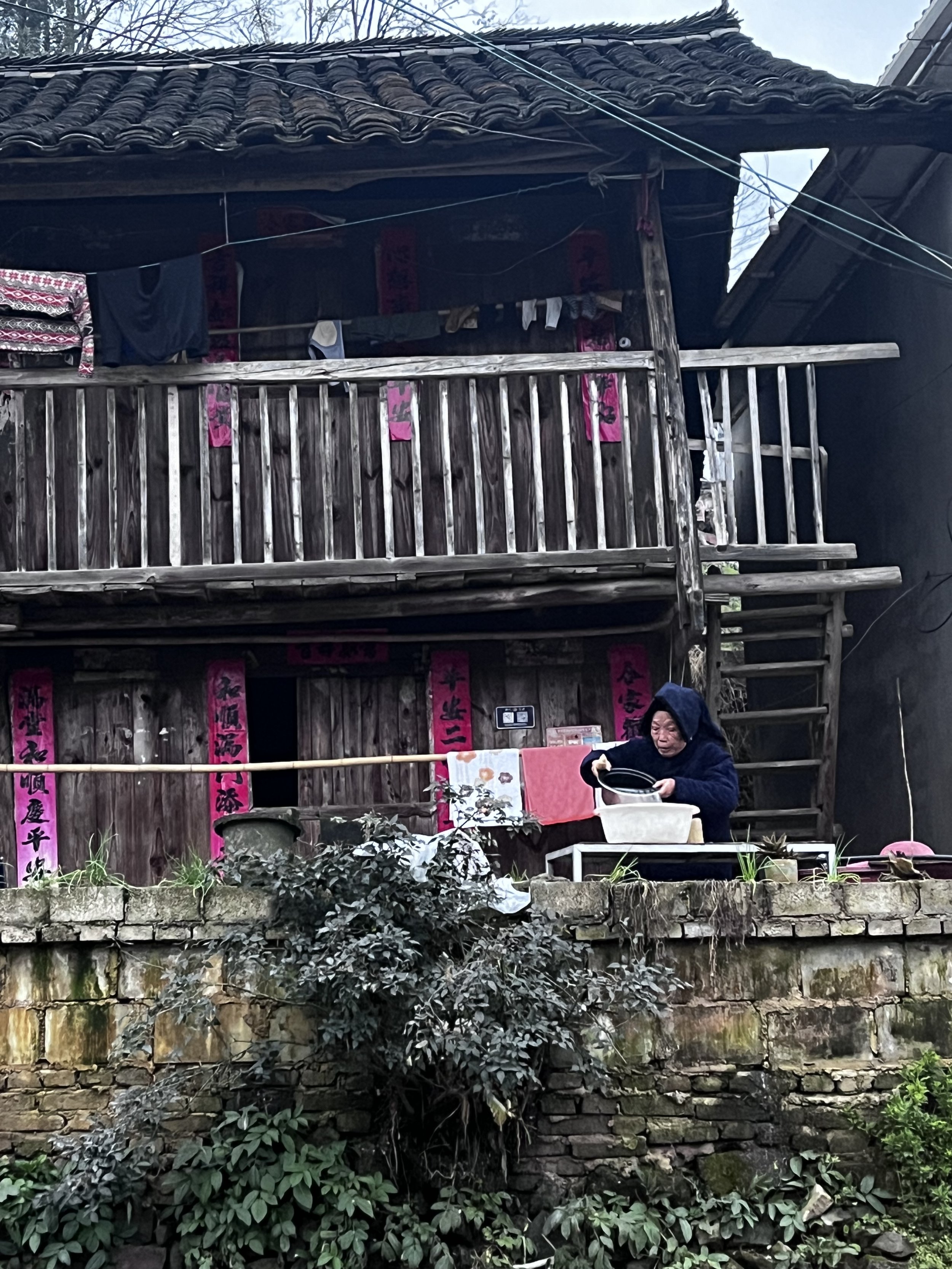
Field Research in Baixing Village
Preserving Cultural Heritage at Its Source
To deepen our understanding of the embroiderers’ craft and the challenges faced by their community, our dedicated team embarked on a remarkable journey, flying 10,236 kilometers from Vancouver to Baixing Village, Guizhou Province, China. Over the course of two weeks, we immersed ourselves in the local culture, forming connections with the artisans and gaining invaluable firsthand insights into their lives and traditions.
Upon arrival, we were greeted by the vibrant colors of the embroiderers’ work, each stitch telling a story of resilience and heritage. Watching the women deftly maneuver their needles, we were captivated by their intricate craftsmanship and the cultural significance embedded in every piece. Meeting the embroiderers face-to-face and hearing their stories of struggle and triumph brought a profound sense of urgency to our mission. The women’s embroidery is not just art; it is a vital part of their identity, reflecting their dreams, challenges, and the spirit of their community.
However, in a world that often overlooks these remote areas, their skills risk fading into obscurity. This journey wasn’t solely about learning their craft but also about understanding the importance of fair trade in keeping their traditions alive. By supporting them in a fair and transparent way, we can ensure that these women are compensated justly for their incredible work. Fair trade becomes a lifeline, empowering them not only to rise above poverty but also to preserve the rich cultural traditions of Baixing for future generations.
Through workshops and discussions, we shared knowledge on sustainable practices and marketing strategies, equipping the artisans with tools to reach broader markets. Our collaborative efforts highlighted the importance of transparency in fair trade, fostering a sense of empowerment among the embroiderers. The intricate stitches they produce are more than mere patterns on cloth—they are the voice of a culture, speaking through generations, that fair trade allows the world to hear.
